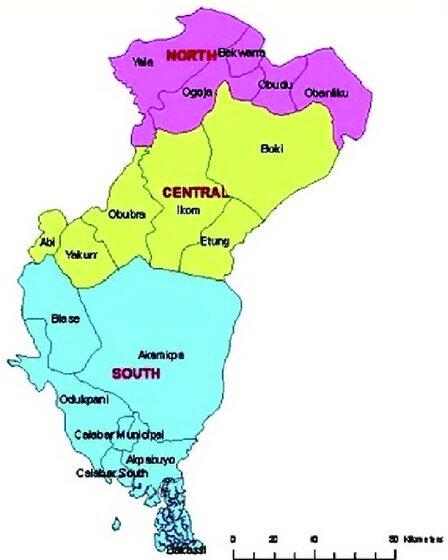The political season has come around full swing in Cross River State, and no other subject is dominating the headlines more than the subject of zoning. Arguments around zoning have been so predominant that very little mention is given to the suitability and competence of those aspiring to govern four million people.
Let me give a brief political and historical context for those who might need it. The People’s Democratic Party (PDP) has won every gubernatorial election in Cross River State since the inception of the fourth republic (1999). There are three senatorial districts in Cross River State and each district has produced a governor over the last twenty three years. The party produced Mr. Donald Duke (Southern senatorial district) in 1999, Senator Liyel Imoke (Central senatorial district) in 2007 and Senator Benedict Ayade (Northern senatorial district) in 2015.
With the governorship having transited from south to central to north, it seems logical and quite reasonable for some to feel that it is fair for it to return to the south once again. The proponents of zoning believe that it respects the principles of the Calabar-Ogoja accord – an agreement of political stakeholders entered into in 1980.
Being from Big Qua Town in Calabar (Calabar Municipality local government), I belong to the Southern senatorial district, which should benefit from zoning in terms of producing the next governor of our state. This notwithstanding I disagree with the principle of zoning and my reasons are as follows.
- As Crossriverians, we must put the interest of Cross River State above the interest of our ethnic or regional identities. If we put Cross River State first, we will be seeking for the person with the best vision, capacity, and credentials to lead our state. When we reduce our options to aspirants from a single senatorial district, we do ourselves a disservice. By so doing, we sacrifice competence for ethnicity, and we deprive our state of the best possible leadership outcomes.
- Some suggest that the principle of zoning nurtures fairness and equity, I would argue that it does not. Whatever “fairness” and “equity” a region derives from zoning will most likely benefit the largest or most prominent ethnic group in that region. This will lead to unfairness and inequity in that region. By zoning, we will simply be shifting the “problem” from the state level to the senatorial district level. One could argue that for zoning to truly be fair and equitable, we must take it all the way to the end and rotate the governorship across every village in the state. This idea is both ridiculous and ludicrous.
- The principle of zoning will deprive capable aspirants of the opportunity to vie for the position while still in their prime. Take for example a forty-five year old gubernatorial aspirant from the Northern senatorial district in 2023. With the current zoning formula, he or she will have to wait until 2039 (sixteen years) to become eligible to vie for the position of governor, by which time he or she will be sixty-two. The same principle that seeks to promote fairness will ironically be very unfair to such an aspirant.
I believe that our approach to choosing the next governor should be different. Cross River State is bedevilled with a myriad of challenges. What we should be looking for at this time is a visionary leader who can reverse the downward trajectory of our state and set us on the path of growth and prosperity. It should not matter which village, local government, or senatorial district he or she comes from. Competence should be elevated above all else. This is my humble submission.
Iso Bassey




